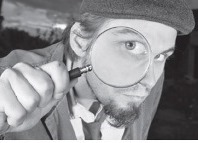Tirana, 6 June 2014 – Is the Albanian law on access to information useful in the daily work of Albanian journalists? Is its implementation a pending issue? Should journalists play a greater role in implementing the law and in encouraging the rest of society to use this right?
To advance debate on these issues, a Legal Leaks training seminar was organized by UNESCO in cooperation with Access Info Europe, the SEENPM and the Albanian Media Institute. Around 30 participants joined that event, which took place in Tirana on 4 and 5 June 2014.
«The Albanian access to information law has been in force since 1999. It is now in the process of being amended to improve its scope and the procedure of accessing information. The law is not much used by journalists and citizens, which is a problem«, said Remzi Lani, Director of the Albanian Media Institute.
During the seminar, specific emphasis was made on the fact that access to information is a fundamental right that has been regulated in 97 laws laws around the world. This means that journalists have the possibility to request information not only in their own country but also in other countries and from international institutions. During the seminar, Access Info Europe shared examples of successful stories of journalists who have requested information internationally, and shared tips on how to do it.
The journalists shared their experiences requesting information from Albanian public bodies, which had mixed success. A number of lawyers present at the seminar present their experiences in challenging refusals to provide information in the courts and are fighting for the right of journalists and civil society not to pay fees to appeal other cases in the courts.
A presentation by Gent Ibrahimi, of the Institute for Policy and Legal Studies, reviewed the current law and outlined some shortcomings, and then explained how these would be addressed in the new law. These include reducing the time frames for responses. Another important proposed improvement is to ensure that data can be accessed in multiple formats, including open data, machine-readable formats.
Data expert Gjergj Erebara gave some inspiring examples of data journalism and reviewed possible techniques and strategies which can be used by Albanian journalists. These included data visualisation programmes available on line. One issue which arose in debate is the poor quality and lack of detail in datasets published in Albania, something which civil society is arguing should be improved, particularly with Albania now a member of the Open Government Partnership.
On the second day, participants discussed initiatives to establish a media self-regulatory body in Albania and issues of media ethics in the country with Lufti Dervishi, a self-regulation expert. They noted that while there has been some progress of in the quality of journalism during the past twenty years, the process of establishing a fully functioning self-regulatory system will take time and needs even more debate in the media community and in society in general.
Helen Darbishire of Access Info rounded off the workshop with a session on how to deal with and protect whistleblowers, including with considerations of data security.
This event was taking place in the framework of the EU-UNESCO project: «Media Accountability in South East Europe» which started in January 2013. The training was the second training in a series of local events that will take place in the region.
For more information please contact:
Victoria Anderica, Access Info Europe
victoria@access-info.org | +34 91 365 65 58

